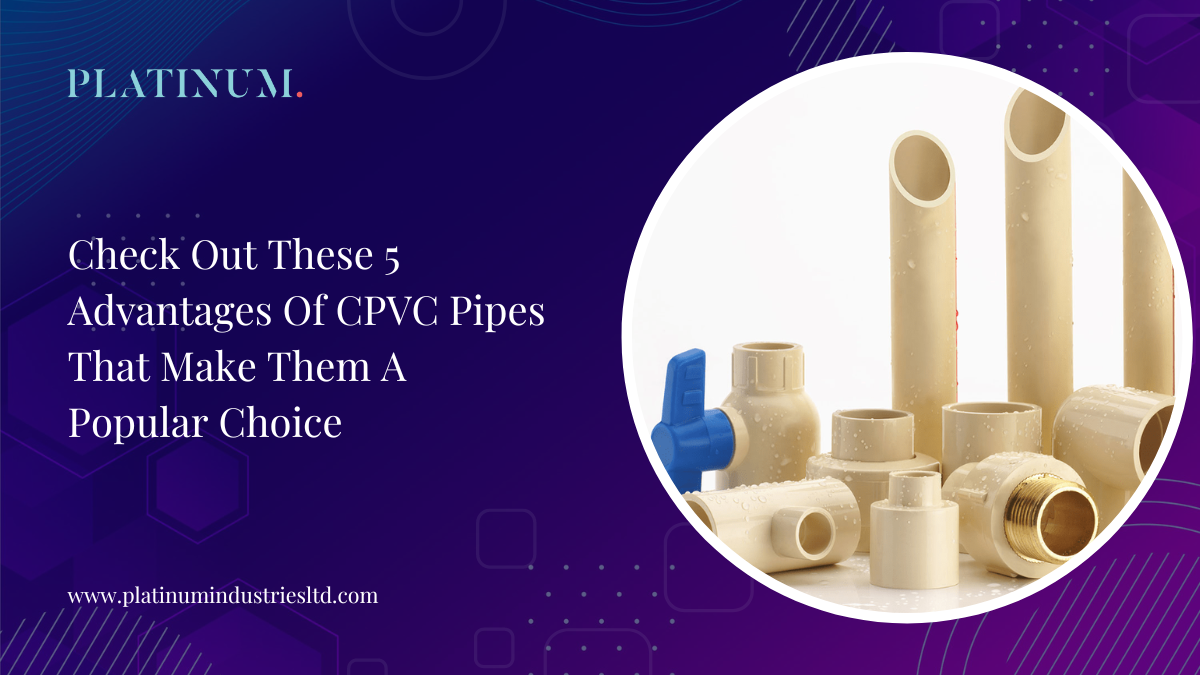What is CPVC?
When PVC (polyvinyl chloride) has been chlorinated through a free radical chlorination reaction, CPVC is produced. CPVC are made of chlorine added to PVC in a water slurry of fluid chlorination bed. UV light is often used to trigger the chemical reaction that produces CPVC.
This chlorinated PVC has the right mix of several ingredients that makes it suitable for further processing. That is the key to its advantages and by extension, its popularity in applications. For example, CPVC have higher immunity against extreme temperatures and pressure, enhancing their resistance to fire and corrosion. This makes them excellent manufacturing materials for a host of applications.
In terms of pipes, CPVC was first introduced for potable plumbing in 1959. Due to its resistance to high temperature and pressure, the material soon became popular not only for plastic plumbing but also in fire sprinklers, and industrial and process piping applications.
Applications of CPVC Addpacks:
We can’t talk about the advantages of CPVC addpacks without understanding their applications. As a CPVC addpacks manufacturer, our product becomes a hit in the market not just because of its high quality but also due to its usage and demand in a number of industries for a variety of piping applications. This popularity stems from its advantages and is an intrinsic part of the overall significance of CPVC addpacks.
•Plumbing: Hot and cold water piping systems, both residential and commercial
•Fire protection: For residences and light hazards
•Chilled water piping
•Hydronic piping and distribution (radiators, fan coils, etc.)
•Suitable for many industrial and process piping applications
Advantages of CPVC:
1. Long-lasting:
Because CPVC is essentially plastic, it does not erode very easily, and neither does it rust. It has high resistance to extreme heat and pressure, giving it a long lifespan.
2. Robust and durable:
Due to their resistance to pressure, CPVC pipes can handle high water pressure to enable robust piping systems for water supply. They ensure a safe and smooth supply of potable water across multiple piping systems in many industries
3. Resistance to chemical erosion, heat, and fire:
CPVC is immune to many household chemicals, reducing the risk of erosion or damage due to chemicals. It also has self-extinguishing abilities. That means, when exposed to a flame, it does not catch fire. CPVC pipes can resist temperatures up to 93 degrees Fahrenheit, making them suitable for transportation of hot water. These advantages make CPVC addpacks perfectly safe and durable for industrial and commercial piping systems.
4. Easy to maintain:
CPVC pipes are lightweight, flexible, and reliable in the long term, making their maintenance a cakewalk.
5. Compatible with fittings:
CPVC, being flexible, can adapt to any kind of pipe fitting requirement, and can be molded into a wide range of sizes for any piping system.
CPVC pipes are a popular choice due to their resistance to corrosion and chemicals, high temperature tolerance, durability, easy installation, and low thermal conductivity, making them a reliable and cost-effective option for both residential and commercial settings.
CPVC pipes are a popular choice due to their resistance to corrosion and chemicals, high temperature tolerance, durability, easy installation, and low thermal conductivity, making them a reliable and cost-effective option for both residential and commercial settings.

